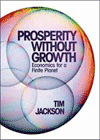Real world attempts to live sustainably
Overall aims
The project aimed to explore ‘sustainable lifestyles’ from the perspective of those who identify themselves as attempting to live one.
Context
Despite increasing use of the discourse of ‘sustainable living’ there is considerable lack of clarity about what ‘sustainable lifestyles’ are, how they might operate to foster pro-environmental behaviour and sustainable patterns of consumption at the individual level or relate to wider questions of social and environmental change. This project sought to provide insights into how those that saw themselves as adopting a ‘sustainable lifestyle’ understood the concept and what implications this had for their behaviours and practices.Research questions and methods
The research involved 25 in-depth interviews with persons who identified themselves as attempting to live a ‘sustainable lifestyle’. Particular attention was paid to the routes through which respondents arrived at their efforts to live and consume sustainably as well as the strategies utilised to negotiate the complexities, contradictions and perceived inconsistencies that these efforts entailed. Interviews were recorded and transcribed in full and a qualitative analysis of the data was conducted.
Results
Respondents’ narratives of living sustainably often involved discussion of their practices in relation to food, transportation, energy consumption in the home, waste/recycling and recreational activities. The bundles of social practices thought to comprise sustainable lifestyles were not, however, common across respondents; nor was the importance placed on different domains of activity. Virtually all respondents positioned their more sustainable social practices in terms of changes they had made, such as flying less or switching to an energy efficient car. Many suggested that however many changes they made there was always more they could or should do. As such, it makes sense to think of sustainable lifestyles as an ongoing process.
Respondents’ accounts of how they had come to attempt to live more sustainably often interwove the influence of environmental concerns with other priorities and agendas such as frugality, vegetarianism, animal rights, human rights and social justice.
The data reveal a range of perceived inconsistencies amongst and across the social practices the constitute respondents lifestyles. Attempts to live more sustainability generate tensions for many between efforts to reduce their environmental impact and desires to ‘have a life’ and ‘be a bit selfish’. Some, however, discussed the potential which sustainable lifestyles offer for alternative sources of hedonism.
Implications
Multiple meanings and justifications exist for ‘sustainable’ social practices providing a range of entry points through which policy might motivate the uptake of sustainable lifestyles. However, the emphasis needs to be on structural changes such that individual efforts to live sustainably are situated within a meaningful framework of social and environmental change.
Outputs
Hayward, B, T Jackson and D Evans 2011. UK youth: the conflicts of contemporary lifestyles visions for change: global survey of sustainable lifestyles UNEP Paris: 99-105.
Evans, D 2010. Thrifty green or frugal: reflections on sustainable consumption on a changing economic climate. Geoforum 42 (5): 550-557.
Evans, D 2010. Consuming conventions: sustainable consumption, ecological citizenship and the worlds of worth. Journal of Rural Studies 27 (2).
Evans, D and W Abrahamse, W 2009. Beyond rhetoric: the possibilities of and for 'sustainable lifestyle. Environmental Politics 18 (4): 486-502.
Evans, D and T Jackson 2008. Sustainable consumption: perspectives from social and cultural theory. RESOLVE Working Paper Series 05-08. Guildford: University of Surrey.
Evans, D 2007. Attitudes, values and culture: qualitative approaches to 'values' as an empirical category. RESOLVE Working Paper Series 04-07. Guildford: University of Surrey.
Evans, D and T Jackson 2007. Towards a sociology of sustainable lifestyles. RESOLVE Working Paper Series 03-07. Guildford: University of Surrey.





